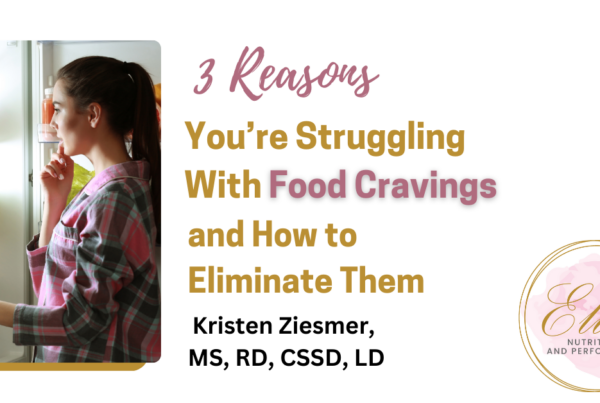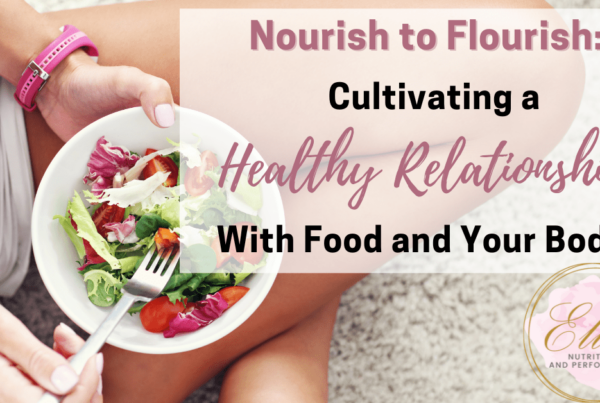In this post, I’m sharing more about what “unapologetic eating” means and how you can use your relationship with food as an entry point for further exploration and transformation. As you find peace and liberation with food, you will start to feel at home in your body, understand your inherent worth, and move closer to unapologetically eating and living.
This post contains edited excerpts from my new book, Unapologetic Eating.
A couple of years ago, I posted a series of photos on social media of me eating a sandwich. Not just any sandwich, mind you; it was a big ol’ Pub Sub from Publix, the well-known southern U.S. grocery store chain. In the images, I’m blissfully ignorant of the fact that my partner is taking photographs. I am mid-bite, eyes closed, hunched over in my bikini, with my forehead scrunched up and my mouth open wide. Just unabashedly enjoying the heck out of that massive sandwich, crumbs on my face and all.
When I posted the photos on my Instagram feed later that day, I wrote a quick, off-the-cuff caption asking my followers, “Why don’t we see more images of women actually eating food? Not looking perfect, not talking about how ‘good’ or ‘bad’ they are being, not commenting on or criticizing their bodies, but just eating and enjoying food?
I never expected the reaction that the series of images—and those questions— would have. Almost immediately, comments began flooding in from people telling me how validating and liberating it was to see another woman eating—and enjoying—food without offering any explanation or apologizing for what she was eating. Many people commented on how “brave” I was for posting that photo and said they could “never in a million years” post an imperfect photo of themselves that showed their rolls, their cellulite, or food on their faces.
But why was this photo so revolutionary? Why, when you search the Internet for the phrase “women eating food,” do you get served dozens of stock images of thin, young, white women posing with a salad? Why, when you do the same search but replace women with men, do you see a whole bunch of images of men eating (actually eating) burgers, fries, and pizza?
What does it say about our society that the media we consume—whether television, movies, advertisements, or social media feeds—is almost invariably filled with thin, young, white, conventionally attractive women who never seem to be eating anything?
Why were the photos of me with my Pub Sub applauded, whereas similar images of some of my colleagues and friends who are fat eating and enjoying food, led to them receiving dozens of body-shaming, food-shaming, weight-shaming hate messages?
Questioning Everything
Up until this point, I had never really questioned the photos I saw daily in the media (which also speaks to my privilege as a thin, young, white woman because I was mainly seeing images of people who looked just like me), but the implicit messages that these images send to women and girls were now staring me in the face: If you’re going to take a photo of yourself with food, you must look pretty doing it, and you must be thin, or else you open yourself up to commentary on how “unhealthy” (or worse) you must be.
The reactions that people had to my post—and the digging that I started to do once I realized that a photo of a woman eating “real” food without explanation or apology was a big deal—caused me to begin questioning everything.
I realized that the food and body image hang-ups that so many people face are actually symptoms of a much larger cultural problem. As I began thinking about the clients I had worked with over the years, I noticed patterns. Not only did many women feel like they needed to apologize, explain, or justify why they were eating certain foods, but this need to apologize or ask permission extended into many different aspects of their lives.
I saw this pattern in my own life as well: I had spent my entire life following the “shoulds” that I had learned from society about what a woman should be and do, how she should act, and what she should look like—and apologizing when I felt like I wasn’t living up to those societal expectations.
From apologizing for my appearance (“I’m sorry I look awful; I didn’t have time to do my makeup this morning” or “Ugh, ignore my outfit; I had planned to change”), my food choices (“I would get a salad, but I skipped breakfast, so I’m going to let myself get a burger instead” or “Oh, I know I’m being so bad, but I’m going to order dessert”), to work or personal life situations where I had clearly done nothing wrong (“Sorry I didn’t respond to your text message right away” or “I’m sorry, can I add something here?”).
I did it all of the time.
Food as an Entry Point to Transformation
As I learned more about the roots of our culture’s obsession with dieting and thin bodies this pattern I saw in my clients (and myself) of food and body image struggles as a side effect of deeper societal issues made so much more sense. The impossible set of standards that people are supposed to conform to have nothing to do with food, or weight, or body size. As I explain in my book, your struggles with food and your body have nothing to do with you and everything to do with the society that you have been raised in and now have to exist in.
When I began working with clients years ago, I thought I was going to be focusing on people’s relationship to food. But I quickly learned that food behaviors were the symptom—not the problem—and the relationship that really needed mending was the one people had with themselves. What presented as a problem with food or a problem with body image was more deeply rooted. The problems had nothing to do with them and everything to do with society.
As my clients questioned their beliefs about food, dieting, and weight, they started to question all sorts of other thoughts, feelings, and beliefs. In the process of relearning to trust their bodies around food, I watched them start to trust themselves in many other areas of their lives.
It was then that I realized how food can be a powerful entry point into exploring more about ourselves, our beliefs, our values, and what we truly want out of life.
What is Unapologetic Eating?
When I began writing this book, I had no idea what title I was going to give it. But the more I wrote, the more I realized the underlying theme that was emerging. When it comes to food, body size, setting boundaries, work decisions, or life choices, I want you to be able to do what you want without asking permission or needing to justify, explain, or apologize.
Unapologetic eating means eating what you want, when you want, and how you want without feeling guilty or ashamed.
It is that photo of me with the sandwich: not perfect, a little messy, food on your face, clearly enjoying yourself, and fully inhabiting your body.
It is the audible mmmm you let out when you eat something really good.
It is being in the moment with what you are eating, and what you are doing, without feeling self-conscious or worrying about what others may be thinking.
Unapologetic eating is about getting back to your roots and to who you were before society told you who you should be.
From Unapologetic Eating to Unapologetic Living
As you learn to trust your body with food, this trust transfers to other areas of your life. The more you connect with your intuition, your inner knowing, the more grounded and unapologetic you can be: with food and in life.
I wrote Unapologetic Eating to encourage more people to think outside of the arbitrary boxes that society has put us in. In the process of questioning everything and unlearning the (incorrect and oppressive) beliefs you have been taught, you get to explore, learn, and define new truths for yourself.
As you find peace and liberation with food, you will start to feel at home in your body, understand your inherent worth, and move closer to unapologetically eating and living. Because true freedom and liberation come from rejecting all the instances of “I should” and “I’m supposed to” to find—and trust— who you really are deep inside.
And thus begins the process of unlocking your true self and the ability to live your most authentic, meaningful, liberated, unapologetic life.
What does “unapologetic” mean to you? What would it be like to get free from diet culture, from society’s unrealistic standards? Share with me below!
This post contains edited excerpts of my book Unapologetic Eating.








